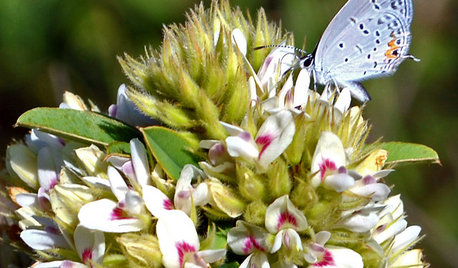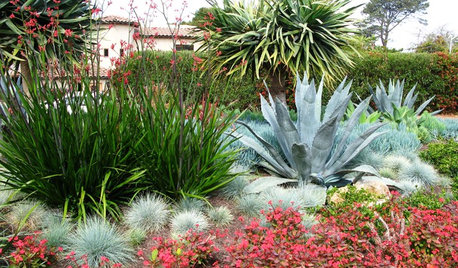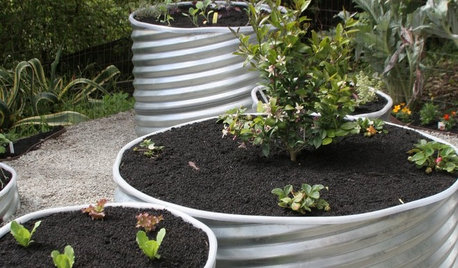organic soil
sissysimone
16 years ago
Related Stories

GARDENING GUIDES5 Prairie Wildflowers That Can Heal Your Soil
Get free, organic soil fertilizer with nitrogen-pumping plants that draw pollinators too
Full Story
FARM YOUR YARDHow to Get Good Soil for Your Edible Garden
The nutrients in your soil feed the plants that feed you. Here are tips on getting it right — just in time for planting season
Full Story
GARDENING GUIDESThe Poop Scoop: Enrich Your Soil With Good Old Manure
Get over the ick factor already — this natural super-ingredient for soil has so many benefits, you'll wonder why you ever went chemical
Full Story
GARDENING GUIDESGardening Solutions for Dry, Sandy Soils
Has your desert or beachy site withered your gardening creativity? Try these ideas for a beautiful, easy-care landscape
Full Story
GARDENING GUIDESHow to Pick a Mulch — and Why Your Soil Wants It
There's more to topdressing than shredded wood. Learn about mulch types, costs and design considerations here
Full Story
GARDENING GUIDESGardening Solutions for Heavy Clay Soils
What’s a gardener to do with soil that’s easily compacted and has poor drainage? Find out here
Full Story
GARDENING GUIDESGrow a Beautiful Garden in Alkaline Soil
Got alkaline soil? Learn how to manage it and the many beautiful plants that will thrive in this ‘sweet’ soil
Full Story
GARDENING GUIDESGet the Dirt on Your Garden’s Soil
Understand how your soil supports your plants so you can ensure your garden’s success
Full Story
GARDENING GUIDESHow to Stop Worrying and Start Loving Clay Soil
Clay has many more benefits than you might imagine
Full Story
CONTAINER GARDENSContainer Gardening Basics: The Dirt on Soil
Learn the types of potting soil available and the best mixes to help your containers thrive
Full StorySponsored
Leading Interior Designers in Columbus, Ohio & Ponte Vedra, Florida



tapla (mid-Michigan, USDA z5b-6a)
calistoga_al ca 15 usda 9
Related Discussions
Best ORGANIC soil for growing fruits/vegetables? (NJ Area)
Q
Organic soil for garden box?
Q
Organic Soil Admendments
Q
Do Sempervivum Need a More Organic Soil?
Q
sissysimoneOriginal Author
greenchem
greenchem
kimisdad
sissysimoneOriginal Author
hitexplanter
sissysimoneOriginal Author
greenchem
meyermike_1micha
greenchem
calistoga_al ca 15 usda 9
sissysimoneOriginal Author
sissysimoneOriginal Author
tapla (mid-Michigan, USDA z5b-6a)
greenchem
greenchem
greenchem
sissysimoneOriginal Author
tapla (mid-Michigan, USDA z5b-6a)